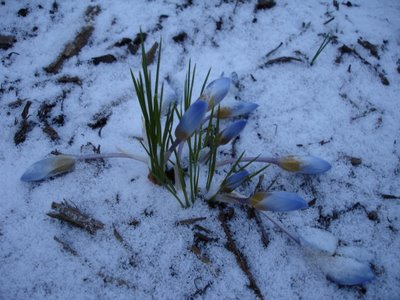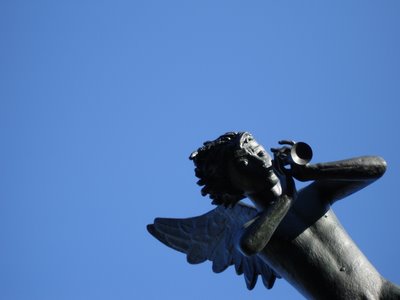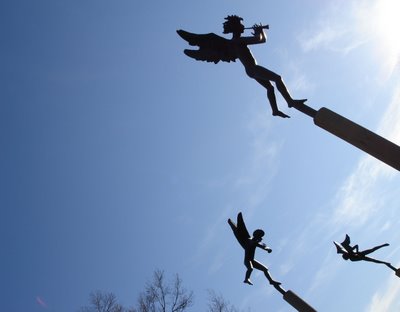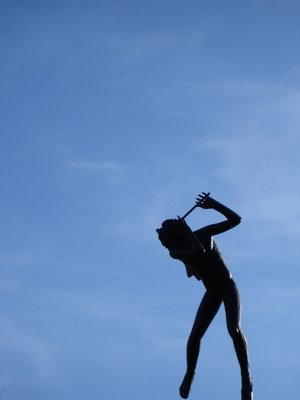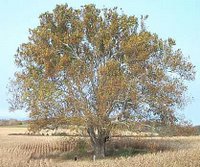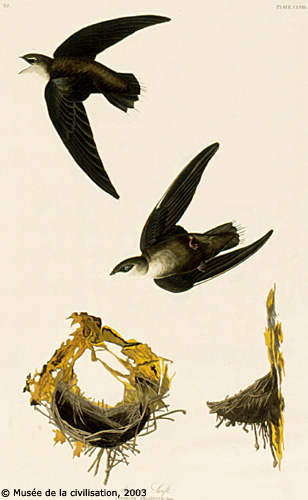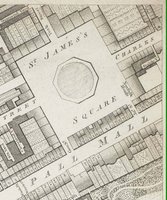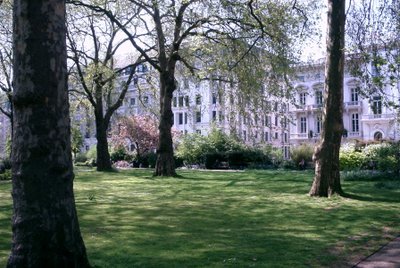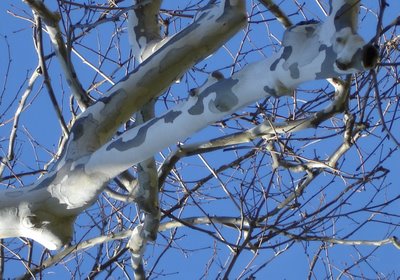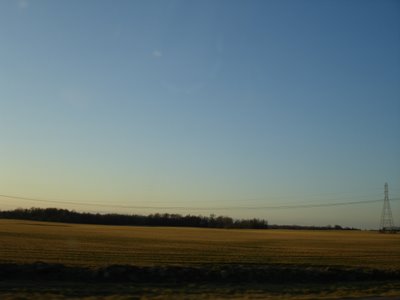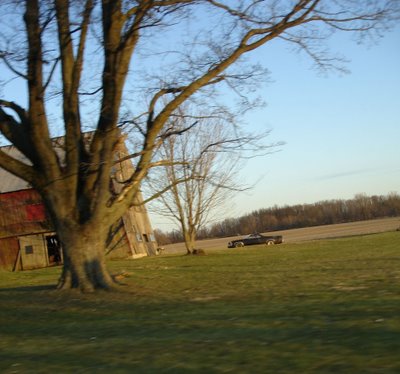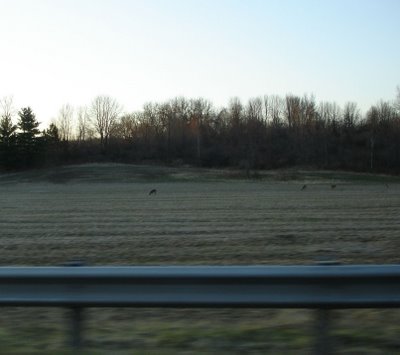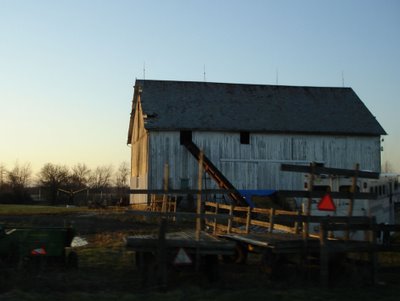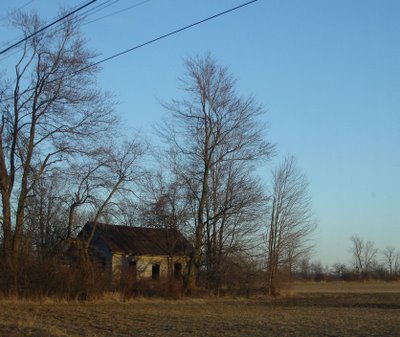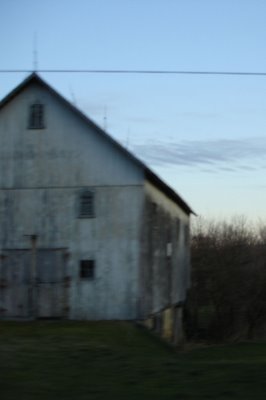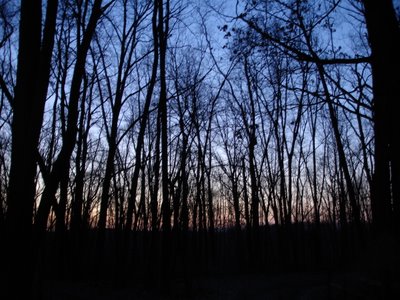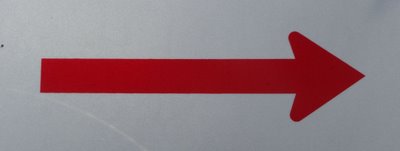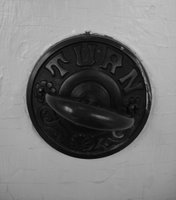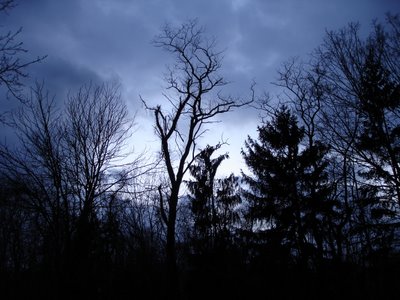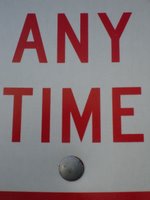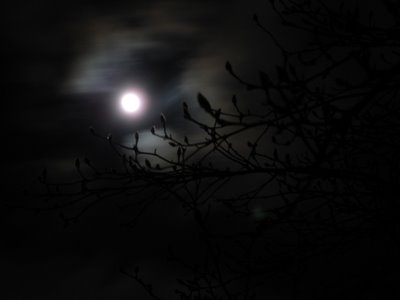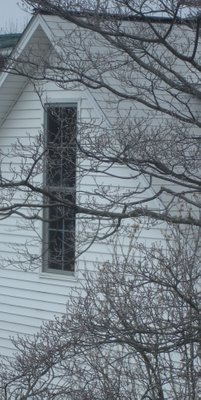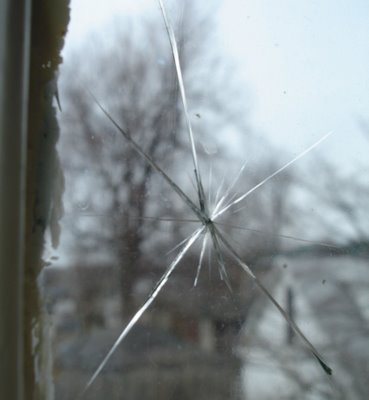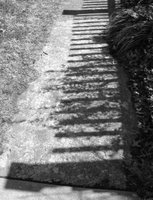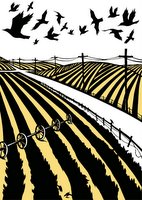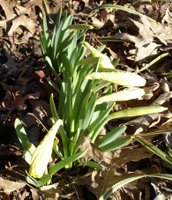 Tonight, I have reached my hundredth post. Because my day basically involved my watching extremely silly contemporary movies, checking out library books, filing some forms, and then eating delicious curried salmon while watching (and helping provide live satirical commentary for) King Vidor's The Crowd (1928), and because I'm feeling a strong compulsion to do something memorable to mark my gratitude that these writings have come to constitute such a productive, provocative part of my life in the past few months, I've decided to revisit a experiment in self-narration that I did last year, in private, after my soon-to-be-Chicagoan friend posted a list of 101 things about himself on his blog. Back then, the Cabinet was nary a twinkle in my eye, and so I wrote my list just to my friend. It gave me such a high that I then proceeded to write two or three pages of fiction, for the first time in more than a decade. I then more or less turned my back on all but my critical writing for another whole ten months, before everything came to a boil in December.
Tonight, I have reached my hundredth post. Because my day basically involved my watching extremely silly contemporary movies, checking out library books, filing some forms, and then eating delicious curried salmon while watching (and helping provide live satirical commentary for) King Vidor's The Crowd (1928), and because I'm feeling a strong compulsion to do something memorable to mark my gratitude that these writings have come to constitute such a productive, provocative part of my life in the past few months, I've decided to revisit a experiment in self-narration that I did last year, in private, after my soon-to-be-Chicagoan friend posted a list of 101 things about himself on his blog. Back then, the Cabinet was nary a twinkle in my eye, and so I wrote my list just to my friend. It gave me such a high that I then proceeded to write two or three pages of fiction, for the first time in more than a decade. I then more or less turned my back on all but my critical writing for another whole ten months, before everything came to a boil in December.
Rather than list 101 things about myself, I will give you only 100. And rather than list them by number, I'll present them in paragraphs of ten. It may well turn out that you'll get ten ten-sentence paragraphs that will be about whatever it is my mind starts constellating, here, rather than 100 discrete things, so consider yourself forewarned. You can double-check my counting, if you want. I predict that your experience will be rather like mine on Nauplion's thousand steps.
One. I was born in Detroit, Michigan. Over the course of my childhood and adolesence, Detroit's decay and fall, and the way it made me fear for my life (so much so that I sometimes put my head between my knees while we rode through Detroit in the car, because I worried that we were going to die), developed my understanding of what cities had to be like. By the time I traveled to New York City for the first time in 1999, I was ready to be felt up, mugged, and/or shot in the subway, if not in Port Authority the moment I stepped off the bus--despite the fact that I had already begun learning the joys of city visiting when I lived in Athens and in London. When I was in Brooklyn last October, I realized, coming in from Ronkonkoma on the Long Island Rail Road and the Q train, that my body has learned a way of holding itself that I automatically and happily step into when I arrive in cities. I gaze straight ahead but still manage to take in everything on my peripheries, not because I'm scared and not simply because I'm vigilant but mainly because there's so much to see and hear that I go into sensory overload. One thing that doesn't change in cities is the length of my stride. I am a fast walker, and not because I take a lot of steps. I realized at a particular moment just how much I enjoyed walking with a long stride: it was in the middle of a swim meet, when I was about ten, and I was walking along the pool deck, getting ready to round the corner near the shallowest end of the part of the pool in which we didn't compete, when it suddenly hit me that my feet were hitting the concrete and my legs were pushing me off with a strength I wanted to keep relishing until I couldn't anymore. One of my funniest memories from high school: shopping for a prom dress with my mother, I strode out of the dressing room in one possibility, and she said, "If you're going to wear that dress, you should take smaller steps." Sometimes I still worry that my mother thinks I haven't turned out to be the right kind of woman, even though she's also one of a handful of women who taught me that there is no right kind of woman--and who thus made me a feminist, even if all those women wouldn't necessarily identify themselves as feminists--and even though her response to this sentence will be, "You have to be the kind of woman you need to be. It's your life."
Two. I wasn't really born in Detroit. I was really born in Grosse Pointe, down the road from Detroit. I say that I was born in Detroit not because no one's heard of Grosse Pointe but because I don't want to sound as though I was born in a wealthy suburb (we didn't live there; we were Detroiters), even though I'm sure that not everyone in Grosse Pointe was or is wealthy. When I finally saw the movie Grosse Pointe Blank (1997), though, I was terrifically excited to see the houses along Lake Shore Drive, because I used to see those houses every time my parents and brother and I would visit our families in Detroit. The movie to which I've had the strongest "I've seen that!" reaction, though, is Hoosiers (1986). If you've seen the beginning of Hoosiers, when Gene Hackman is driving through a steely grey Indiana morning, autumnal cornfields stretching out on either side of the rural routes he travels, then you've seen the landscape that formed a significant part of me. When we first lived in Indiana, my mother told us that the state where one has lived the longest counts as the state one is from. By these rules, Indiana is where I'm from. When people ask me where I'm from, though, I can't just say "Indiana." I tend to go all the way back to Detroit, then mention Buffalo, NY, and then say Indiana, before I finally explain that I now consider myself a Great Lakes girl, having spent highly significant parts of my life in upstate New York.
Three. Sometimes I wonder where I should be buried, when I die--which is not, I'll reassure you right away, anything like wondering when or how I'm going to die. My maternal grandparents and great-grandmother, the only relatives I've known who have died (or whom I know to have died), are all buried in Detroit's Mt. Olivet Cemetery, near City Airport. There's so much wrapped up in that last sentence that it will take several more to disentangle: for one, as I typed it, I realized that it excludes my uncle Chuck, who died when I was six. I think that he's buried in northern Michigan, where my paternal grandfather is also, but I'm not sure. I have not been in touch with anyone from my extended family since Thanksgiving 2004, so it's not likely I'm going to feel any desire to have my remains located where my extended family members are--if there were even any room left where they are (as in, for example, the multi-person family tomb, marked by a giant stone simply bearing my last name, in another Detroit cemetery, or even in Mt. Olivet). I know that there's no room near my grandparents and my great-grandmother in Mt. Olivet because of the story of how my grandfather and my parents almost had to pick a plot far from my great-grandparents' graves, after my grandmother's sudden death twelve years ago. When they all arrived at the cemetery and consulted the map showing available plots, the section of the cemetery where Bushia and Dzia Dzia are buried looked as though it was full, but at the last second, someone noticed that the plot touching corners with my great-grandparents' plot was available and suitable for two. Just over four years later, my grandfather's ashes joined my grandmother's there. As I flew out the next afternoon, watching the Renaissance Center and the Detroit River get smaller and smaller, I said goodbye to Detroit, possibly forever. Sometimes I wish my grandparents were buried somewhere more accessible to me (in multiple senses), so that I could visit them.
Four. Shortly after each of my grandparents' deaths--as in, within hours in one case, days in another--I experienced major epiphanies that helped me clear really problematic relationships out of my life. At each moment, I couldn't help but consider one of my mother's beliefs: that people who have died maintain some spiritual presence in an afterlife, from which they watch over and guide their living. About a year after my grandfather died, I started seeing a monarch butterfly intermittently and somehow became convinced that it was a visitation from my grandmother. I no longer remember that conviction's architecture, but I can't discount it; sometimes that butterfly still shows up right when I've been thinking about my grandmother, or need some sort of assistance that a thought of her or of my grandfather provides. Though I am not a religious person, then, I do consider myself a believer--just a believer in the idea of something bigger than present human life, as well as in the idea that it's impossible for (as Browning would put it) finite beings to apprehend that something bigger with certitude, which means that it's impossible for finite beings to dictate to other finite beings what they should believe. The nebulous, vague "something bigger" in which I believe might simply be the irrepressible, irreproachable, utterly indifferent force of complexity itself, ever unreeling, ever tirelessly speeding. Sometimes I wonder whether my lack of religion will eventually come back to haunt me. Usually, I believe that it won't. I know that this facet of my being makes my mother a bit nervous. I worry sometimes that it makes her unhappy; this worry about a particular unhappiness is only one small facet of my more general concern that my mother is sometimes unhappy.
Five. I sometimes wonder whether other people think it's strange that I'm very close to my parents. For a long time, I thought that my parents were perfect, a belief that both fueled and was fueled by my need to try and be perfect myself. When this belief finally shook loose a few years ago, I spent about a year mired in virulent anger and frustration. Now that I recognize that we're all flawed, life is more fun and I enjoy being with my parents even more than before. (I hate to sound banal.) But seriously: when I arrived home yesterday, I found a phone message from my father that was one of the loveliest messages I've ever received, from anyone--all an elaboration on a very simple sentence that I suspect lots of parents don't articulate to their children enough: "I love you." (I hate to sound like a parenting manual.) Because my nuclear family is so close, and because my parents' marriage is rock solid (though not perfect), I have very high expectations for relationships. I would rather be single than be in a semifunctional relationship. I am also enabled in this principle by the fact that I enjoy being with myself.
Six. In fact, one of the horrifying things about depression, in my experience, is that it keeps me from liking myself enough to want to be in the same room with myself, a real problem when your occupation is an entirely solitary one. In the ugly fall of 2001, I felt as though I'd been abandoned by my closest friend, the person who was always good to be around; all I had left was a kind of blank where all those interests and insights and desires and energies had been. "The terrible thing about depresion," my dissertation advisor said to me one day that December, "is that it's so boring: you find yourself thinking the same things over and over again, and talking about the same things over and over again, and it's all just one note, all the time." Inexplicably, within a few days of our having had that conversation, I started liking being with myself again. I don't attribute it directly to the conversation; I think that a collection of shifts and changes had been coming together and were possibly catalyzed by it. Whatever happened, though, it was as though a bolt had shot back and my regular self rematerialized and we resumed our temporarily suspended interminable internal conversation about books and ideas and dinner. That fall, in the interests of continuing to do my job, I had assigned a great deal of my unplaceable, unceasing sorrow and fear to a small version of myself that I imagined sitting in a corner, somewhere behind me, able to devote herself entirely to weeping and gnashing, possibly even rending some garments. I knew that this kind of self-splitting, taken too far or rendered involuntary, could be a real problem. This winter, I let another little version of myself split out and go off into a corner to spin happily outlandish romance narratives, while I went about my daily business. Obviously, checking in with my extravagant, hopeful romantic was more fun than checking in with my extravagant, hopeless sorrower had been.
Seven. I really am a helpless romantic. I hesitate to call myself a hopeless romantic, because that phrase is so oxymoronic. But I find my mind turning, as is embarrassingly often the case, to a pop song's lyrics: "There's always something so tragic / about a hopeless romantic," sings Peter Salett in "Heart of Mine," which you've heard if you saw Keeping the Faith (2000), because it was the song backing up the Falling in Love montage midway through the film. I have nearly three decades' worth of pop lyrics filling my brain. "Just slip out the back, Jack, / Make a new plan, Stan, / Don't need to be coy, Roy, / Just listen to me / Hop on the bus, Gus, / You don't need to discuss much / Just drop off the key, Lee, / And get yourself free": "50 Ways to Leave Your Lover" is the first song I remember hearing. Because of the way my memory works, I can quote ridiculous stretches of lyrics and also sing along with the instrumentals of any crazy number of songs. Even though I know that the brain doesn't work this way, I suspect that my mind's being filled with these words and sounds has something to do with what is often a too-fleeting memory of things that do matter. On the other hand, if I could do the kind of elaborative encoding with, say, every moment of Bleak House that I was able to do with, say, the Eurythmics' "Would I Lie to You?" or Escape Club's "Wild Wild West," on all those junior high field trips--well, maybe I really would be encyclopedic the way I've always wanted to be. Lines from movies don't stick with me as naturally and swiftly as lines from songs; I tend to learn albums I love within days of getting them, and then I've got them, pretty much forever. Because I'm a hopeless romantic, a substantial number of these songs are love songs.
Eight. However, an awful lot of them are Beastie Boys songs, which always seems to surprise people (oh word?). But you know what? Any group that drops a line like "I've got more rhymes / than Carl Sagan's got turtlenecks" into a song called "Hey, Fuck You" (chorus: "And if you don't like it, then hey, fuck you!") is a group that's got my heart. When I helped a friend move from Ithaca to Hamilton, NY, a couple of years ago, her husband (hey, guy!) and I sang that song over and over while we packed, drove, and unloaded the moving truck. When my brother wrote a column for his newspaper last month about our favorite songs to listen to together, three of the ten we listed were by the Beastie Boys, and they were all in the top five. Our number one was "Professor Booty," from Check Your Head (1992), and my brother helpfully pointed out to his readers that one of the reasons this song topped the list is that I'm a professor. But I'd like to set the record straight: this song had nothing to do with my becoming a professor. I was already on this path when that album dropped. And now, I consider the Beastie Boys just one more reason to love Brooklyn. I totally want to represent, out here in Gambier, in one of those Blue Marlin hoodies, but they don't sell the one I love anymore.
Nine. When I was ten months old, I had a sixth toe removed from my left foot; my two biggest toes on that foot are still fused. I have a substantial writer's callus on my right middle finger; it's been with me since 1983. I have never thought my hands particularly lovely, but I have always been glad of what they can do. I played piano from age four to thirteen, a practice that (I believe) gave me my particular memory for musical details (including lyrics) as well as my more general ability to trap a startlingly high number of small details and keep them for a ridiculous amount of time. I have been told that this characteristic can be a bit creepy. I certainly know that it has set me up for all manner of heartwreck, because I can and do remember so much, so vividly and minutely. But I also like to think that it makes me potentially useful as a bearer of institutional memory, sort of like an external hard drive though with more subjective flaws and pitfalls. It has disturbed me, over the past few years, to find that my memory might be too crowded, or my mind too diffused, and that I have a harder time instantly recalling details than I once did. One of my greatest fears has always been that I might lose my mind somehow (through a head trauma, for instance--I used to meditate on this fear a lot while we drove along on I-94, heading into Detroit) but still somehow be able to remember what my brain could once do. Depression feels this way, when it sidles up for a visit.
Ten. These paragraphs have taken longer than I expected, as do most things I undertake, which is why I'm perpetually behind and/or late; now I want nine excellent things with which to close tonight's writing. Here's one: when I was eight, I went geode-hunting with a group of kids on a field trip from the Children's Museum in Indianapolis; they drove us down to Monroe County, near Bloomington, and we waded knee-deep in a river, picking up likely candidates for revealing crystalline glories once cracked. The main library on the Indiana University campus at Bloomington was my first research library; I went there for the first time in 1992 and spent many a day during college vacations racing about, gathering books from all over the grad library's tower, feeling like a real researcher, learning to be a real researcher (which included learning to grab a quick meal, in the café at the bottom of the escalators (!) down from the lobby, and then to get right back to the shelves). My favorite library, to this day, is the labyrinthine, highly cultured nerd paradise that is the London Library, a subscription library in London's St. James's Square; it deserves a post of its own, which it will get, but for now, here are a couple of pictures (note, in the first, the open grating that forms the floor, and understand how funny it felt to show up there on day one of my research work, wearing a summer dress).

 (Sigh.)
(Sigh.)
Ten (continued). I love black licorice, maraschino cherries, gerbera daisies, and barbecued eel. I own five pairs of red shoes. I feel a fiction binge coming on, tomorrow. I have, in the past, occasionally gone out on a shopping expedition with the simple but elusive goal of finding a small and beautiful thing, either for myself or for someone else; often these expeditions lead to my seeing many lovely things but nothing truly, truly beautiful. I turn thirty in just over a month; I am pleased that this year, of all years, the moon will be full on my birthday. And though I don't feel particularly anxious or vexed about getting older--I kind of enjoy finding more and more kinky white hairs making their crazy ways out from behind my ears, for instance, or tracing the newest laughlines that are appearing on my face--I do wonder whether I'll feel strange about moving into a whole new decade, and I suspect you'll hear more reflections on this matter as March slips away and April gears up.
One hundred. My gratitude to all of you who have been reading me so far; knowing that the Cabinet has some glancers and glimpsers has helped me keep at the process of building and gathering, and of reorienting myself in some pretty fundamental ways.
sources for tonight's images: 1) Know Your Art!; 2) the London Library.
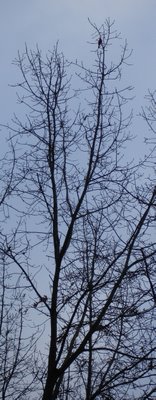 This line is the one that got stuck in my head the second time I came home today. Not the time I came home for lunch and breath-catching after an hour with my thrilled young ones, so happy to be returning to a book they read when they were small, and to find that they understand it now. The time I came home after office hours and an hour-long argument with a student over whether cultural criticism and aesthetic criticism are mutually exclusive and whether aesthetic ranking or valuing is desirable, or even possible. Perhaps unsurprisingly, I turn out to contradict myself and to contain multitudes on these questions. Very well.
This line is the one that got stuck in my head the second time I came home today. Not the time I came home for lunch and breath-catching after an hour with my thrilled young ones, so happy to be returning to a book they read when they were small, and to find that they understand it now. The time I came home after office hours and an hour-long argument with a student over whether cultural criticism and aesthetic criticism are mutually exclusive and whether aesthetic ranking or valuing is desirable, or even possible. Perhaps unsurprisingly, I turn out to contradict myself and to contain multitudes on these questions. Very well. Today, the bird that arrested my steps in the parking lot was not quite so racy as the pileated woodpecker I watched and listened to from my back window during lunch (like cable, indeed!). It was a cardinal, perched at the very top of one of the trees outside my officehouse, singing away. (Except that, perversely, I'm still not sure it was a cardinal. The song sounded not quite right, and the body doesn't look quite right, either; to me the neck seems too slender, too articulated, for this bird to be a cardinal. What I know: the bird was red and lovely, poised in the branches' tracery against the blue-grey evening sky, and it was in song, full throat.) I stood and listened, fixing it with my eye and ear, until my excellent poet colleague joined me, and then we watched and listened to it together until it decided to fly away. We had turned our heads briefly to speak to one another, and when we looked up, the bird was gone.
Today, the bird that arrested my steps in the parking lot was not quite so racy as the pileated woodpecker I watched and listened to from my back window during lunch (like cable, indeed!). It was a cardinal, perched at the very top of one of the trees outside my officehouse, singing away. (Except that, perversely, I'm still not sure it was a cardinal. The song sounded not quite right, and the body doesn't look quite right, either; to me the neck seems too slender, too articulated, for this bird to be a cardinal. What I know: the bird was red and lovely, poised in the branches' tracery against the blue-grey evening sky, and it was in song, full throat.) I stood and listened, fixing it with my eye and ear, until my excellent poet colleague joined me, and then we watched and listened to it together until it decided to fly away. We had turned our heads briefly to speak to one another, and when we looked up, the bird was gone.